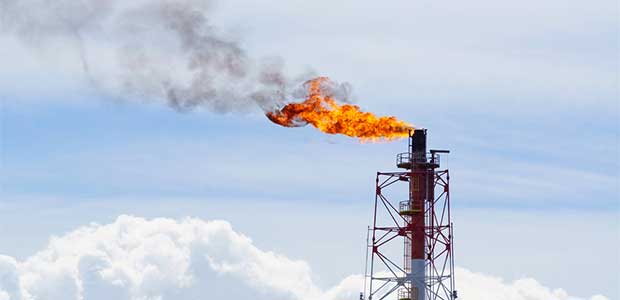
EPA's Proposed Methane Rule Could Mean Big Bucks for Companies and Big Problems for the Environment
Last week, the EPA under the Trump Administration proposed to adjust the existing methane regulation rules from the Obama Era. The rule could potentially save companies money but gravely impact the climate crisis.
The EPA recently proposed a rule that would ease methane emission regulations, especially for the oil and gas industry. While supporters say the Obama administration improperly regulated methane emissions, resisters to the rule say an ease in regulation would be detrimental to the environment.
The proposed rule would no longer require the oil and gas industry to install technologies that monitor and limit leaks from new wells, tanks, and pipelines. The change by the Trump administration would disregard scientific beliefs that methane—even more so than carbon dioxide—poses an immense threat to the climate crisis.
Dominant greenhouse gases (carbon dioxide, methane, and nitrous oxide) released into the Earth’s atmosphere have reached record levels in 2018, and their believed global warming power is not 43% stronger than 1990, according to a recent report by the American Metrological Society.
Scientists believe methane is particularly harmful to the climate crisis given its potency and warming potential. It is 84 times more potent than carbon dioxide, according to the Environmental Defense Fund. According to the EPA itself, methane’s Global Warming Potential (GWP) over a 100-year-period is 21, meaning that methane will cause 21 times as much warming as an equivalent mass of carbon dioxide over a 100-year-period.
The proposal has seen reactions from both sides. Supporters say that the new rule could save the industry between $17 and $19 million annually by not requiring companies to implement technologies that regulate methane. According to the EPA, other regulations on volatile organic compounds (VOCs) already reduce methane output, and redundancy is not necessary.
"The proposal would remove regulatory duplication and save the industry millions of dollars in compliance costs each year -- while maintaining health and environmental regulations on oil and gas sources that the agency considers appropriate," the EPA said in a statement.
Many supporters also claim that companies already have a desire to reduce methane emissions and have been doing so in recent years; costly regulation is simply not necessary.
Not all are of this opinion, however. One CNN article on the topic notes that Shell said it generally supports the Obama-era regulation and has its own plans to reduce methane emissions. "Despite the Administration's proposal to no longer regulate methane, Shell's US assets will continue to contribute to that global target," said Gretchen Watkins, the president of its US-based business. Exxon Mobil also said it "will continue to urge the EPA to retain the main features of the existing methane rule."
Environmental and public health groups slammed the proposal saying it will make the climate crisis worse. The American Lung Association said it “strongly opposes it.” The Natural Resources Defense Council said the EPA leaves the oil and gas industry free to emit methane as it wants. According to the Environmental Working Group, the plan is an “anti-science, anti-health proposal that will make the climate crisis worse.”
Once the EPA’s new rule is published in the Federal Register, there is a window of 60 days for public comment, and a public hearing will follow. The Wall Street Journal, which published an interview with the EPA on the topic, reported the agency intends to finalize the rule by 2020.